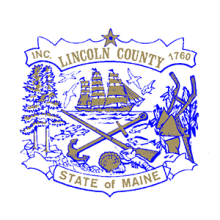By
on

My colleague in Portland, Maine, and I wrote this commentary for Maine's Portland Press Herald.
Last January, as the economy spiraled downward, Time Warner did what no other company could have gotten away with under the circumstances: It imposed a price increase of as much as 5.5 percent on its Maine customers.
Meanwhile, the state's other major broadband Internet provider, FairPoint, has amassed a stunning track record of mismanagement and abysmal customer service, including leaving many customers without Internet service for weeks.
While FairPoint's predecessor, Verizon, was a better-run company, we should not forget that it too gave Maine short shrift by refusing to invest in upgrading its networks throughout much of northern New England.
When it comes to large, absentee-owned corporations, profits invariably trump community needs. Combine that with a lack of competition and you get what we now have: slow, over-priced, inadequate and often unreliable broadband service.
How can Maine's economy thrive when our basic infrastructure is so poor by global standards? Maine lags many states even as the entire United States falls farther behind other countries. In Sweden and Japan, people pay much less for connections that are many times faster. And they have many providers from which to choose.
OTHER OPTIONS
Maine ought to do what a growing number of communities across the country are doing: break their dependence on monopoly providers by investing in publicly owned broadband infrastructure.
One of the best examples is in Burlington, Vt. Burlington Telecom, a city department, built a universal, next-generation, fully fiber-optic network that offers fast broadband, cable television, and telephone services at extremely competitive rates in Vermont's largest city. While the fiber network itself is publicly owned, competitors are welcome to offer their own Internet, telephone, and cable services on the system giving subscribers a choice of providers.
Burlington Telecom makes a good financial sense.
Its infrastructure delivers ultra-fast broadband to schools and city buildings at a fraction of the cost of what these agencies would pay to lease services, saving taxpayer money. Subscriber revenues over the next 15 years will pay back the bonds used to build the network. Plus, consumers save by having access to more choices and more competitive rates.
BUILDING INFRASTRUCTURE
Smaller towns in Vermont realized they could jointly build a similar network. A group of 22 towns has now organized the East Central Vermont Community Fiber Network to ensure that no household or small business in their rural region is left behind in the digital era. Just like Burlington, the publicly owned network will both offer services directly while also welcoming competitors.
In all but the most urban areas, building an open-access network – a single set of lines that multiple companies can provide services over – is the only way to get true broadband competition. Building duplicate infrastructure is impractical and too expensive.
Companies that are used to having exclusive control of cable and DSL lines invariably oppose the creation of open-access networks because its reduces their profit margins.
But open-access networks would be a boon to Maine's economy by fostering competition, innovation and affordable prices for services that nearly every business in this state depends on to compete in the modern age.
In the coming weeks, Maine will have an important opportunity to shape its broadband future. Several groups, including nonprofit public institutions as well as FairPoint, have filed at least 16applications for federal stimulus money to build broadband networks, computer centers and digital literacy programs in the state.
But there's only enough funding for a few of these projects.
When the state prioritizes projects, it has a clear choice to make: Will it support projects that foster greater local self-reliance or those that lead to more dependence on monopoly cable and DSL providers? We believe the state should prioritize and encourage publicly owned and open-access networks.
PUBLIC BENEFIT
FairPoint lobbyists argue that it is unfair for a public-sector entity like the University of Maine System to seek federal broadband stimulus dollars. Maine should answer that its communities and universities do not exist to create profits for a company in North Carolina.
Further, FairPoint has yet to demonstrate that it is capable of building and successfully operating the networks that Maine's communities need.
It would be hard to overstate the long-term economic consequences of continuing to rely on subpar broadband service.
Just imagine if our road network had always been controlled by a similar private monopoly that charged excessive fees to drivers and left some towns and regions with nothing but a few dirt roads.
We would never stand for it in that context and we shouldn't when it comes to broadband service either.
Geoterm





